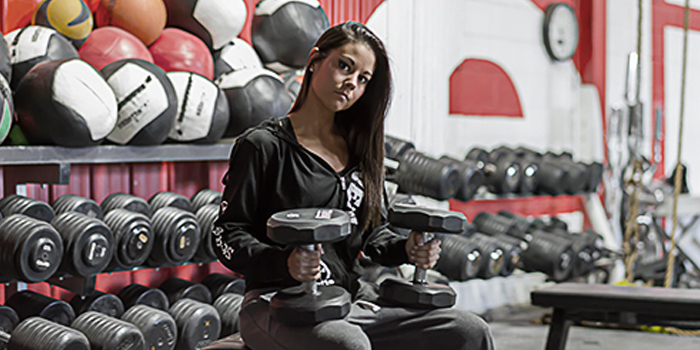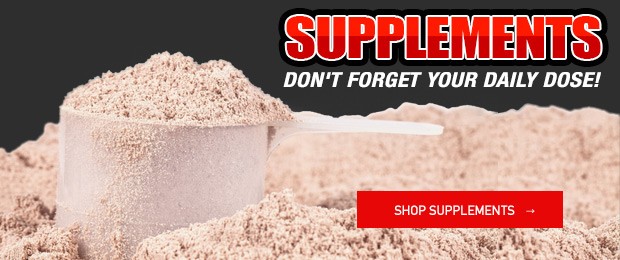
Women’s supplementation (and health and fitness in general) is a strong passion of mine. I wrote an article a while ago on this topic, which you can read here, where I dove into the current state of supplementation marketed specifically toward women. After writing that article, I wanted to create a series that dives into it a bit deeper — ingredient by ingredient almost. Honestly, I want to provide the science and the real truth behind supplement ingredients and the way they work in the body. From that, we can dive into WHY certain ingredients should or should not be found in a “for women” product.
From my research, I have yet to find a female-specific supplement that was equal to or better than a product marketed to everyone (male or female.) I have also found that the cost for a women’s product goes up, while the quality and effectiveness actually goes down. This bothers me. Deeply. And we have seen this before, right? Let’s make it simple and think of the convenience store products: deodorant, hair products, shampoos, you name it. Women's products are largely more expensive with equal or lesser quality to that of the male or “for everyone” equivalent. Don’t believe me? Try men’s deodorant. Just once. Not only is it more effective and cheaper, but it also lasts at least twice as long. Before I get on a rant, let’s get down to business.
MORE: Supplements for Women: The Myths and Marketing Schemes
Let’s talk about beta-alanine (or lack thereof) in women’s pre-workout supplements. If you have ever looked at the label of a women’s pre-workout, you will probably notice beta-alanine isn’t on there. The claim is that women don’t like the “tingling sensation” effect from it and that it’s not worth the claimed benefits. Well, before I get on my soapbox, let’s actually dig into this ingredient, the actual facts, and the research. I am going to go into a bit of detail in the text of this article, so if you aren’t about that life, I also created a short six-minute video—with my dog Jack—on the topic (see below). I apologize ahead of time, as the video was taken two days after Jack had dental surgery, so he was a bit grumpy.
What is beta-alanine and what does it do?
Beta-alanine is a modified variation of the amino acid alanine. When it is ingested, beta-alanine is converted to the dipeptide carnosine. Carnosine, which is stored in the body, is the driver that acts to buffer acid (pH) during increases in physical activity or demand. The substrates of carnosine can be stored in the muscle cells until it is needed (when body pH decreases.) That being said, when you train (lift weights), your body’s pH decreases slowly with each rep, which causes the burning/fatigue sensation in the muscle. This decrease in pH signals carnosine to release to increase the pH, therefore resisting muscle fatigue. Beta-alanine allows you to train longer and harder by preventing your muscles from fatiguing as quickly as they normally would. It has also been proven to improve cardiovascular performance for endurance activities. To be clear, the effectiveness of beta-alanine has been studied for years, repeatedly. The effectiveness (anecdotally and through research) of beta-alanine, at this point, is not even up for debate. The shit works.
What is the proper dosage of beta-alanine?
Studies show the most effective dose is typically between two and five grams. Everyone responds a bit differently, so it is wise to start low and work your way up if needed. The cool thing about this supplement is that it is not timing-dependent. Again, like I stated above, carnosine is stored in your cells and released when needed. Beta-alanine is popular in most pre-workout products simply because it “tops off” your current stores before you train. Keep in mind, beta-alanine and carnosine are both found in meat, egg, and dairy products. So most folks already have some in the tank. We can also gather from that that beta-alanine in supplement form may be even more beneficial for vegan or vegetarian dieters.
Is that tingling sensation safe?
When you take beta-alanine you may notice a tingling sensation in various areas of your skin (mostly ears, face, arms, etc.) This effect is called paresthesia and is completely harmless. To put it simply, when you ingest beta-alanine, it binds to nerve receptors within your body. As humans, we clearly have a lot of nerve receptors within our skin. That is where that sensation is coming from. The sensation is also thought to be due to the release of histidine required through the process, initiating a “flushing” response. Regardless, there are few things about this tingling sensation to be aware of.
The tingling sensation you experience from beta-alanine has nothing to do with “if it is working” or not. Some people don’t experience that sensation at all. The muscle fatigue prevention effects from taking beta-alanine actually have nothing to do with that tingling sensation. They are two separate effects, really. Tingling does not imply effectiveness or lack thereof; it simply means you are either sensitive to it or just took a high dose. Everyone’s tolerance is different, so some experience this sensation at two grams while others can take up to six grams and feel nothing. It is very individual and really, it doesn’t matter.
Can you prevent that sensation if you don’t like it?
You can prevent it. And there a few ways to do so:
- Simply start with a low dose. Start with two grams and go from there. Sometimes, supplement companies overload their product with beta-alanine so their consumers experience that tingling sensation more aggressively. This is largely to make their product seem as if it is “working” better when compared to others. But like we just discussed, that is not the case. So take a look at the labels and see how much is actually in the product. Or, if the product you are using does not include beta-alanine, you can always buy beta-alanine by itself and stack it.
- Drink beta-alanine with carbs. I know that sounds silly, but it works. Drinking beta-alanine with a carb drink, such as highly branched cyclic dextrin, homopolysaccharides, dextrose, etc., will actually decrease that binding effect to the nerve receptors. Although I haven’t tried this personally, I would assume the same would be true if you took beta-alanine after a high carbohydrate meal as well. Either way, this is an option that will not alter the anti-fatigue effects of beta-alanine.
- If you take it consistently the tingling sensation goes away with time. Your body will adapt, and you may not feel it at after a few uses.
So, with all of that being said, it begs the question as to the real reason beta-alanine is not a part of women’s pre-workout supplements. Is it really because women complained about the tingling sensation? Doubtful, as that can be prevented. Is it because the ingredient itself isn’t necessary or effective for women? Also doubtful. Research doesn’t lie.
I’m not here to speculate the whys of women’s products and companies that sell them, but I am here to provide you with the research and facts. Moral of the story, if you choose to spend your hard earned money on supplementation, make sure you are getting the most bang for your buck. Don’t make purchases based on pretty pink labels and bizarre claims. Fatigue prevention is, in my opinion, 70% priority when it comes to pre-workout supplementation. So why would I pay for something that doesn’t actually do what it is supposed to do? Because it is “for women?” No thanks.
References
- Antonio, Jose. "Chapter 22: An Overview of Sports Supplements." Essentials of Sports Nutrition and Supplements. Totowa, NJ: Humana, 2008. 470-72. Print.
- “BETA-ALANINE Supplement: Usage, Dosage, Side Effects & Benefits." BETA-ALANINE Supplement: Usage, Dosage, Side Effects & Benefits - Examine.com | Examine.com. Examine.com, n.d. Web. 30 Jan. 2017.










